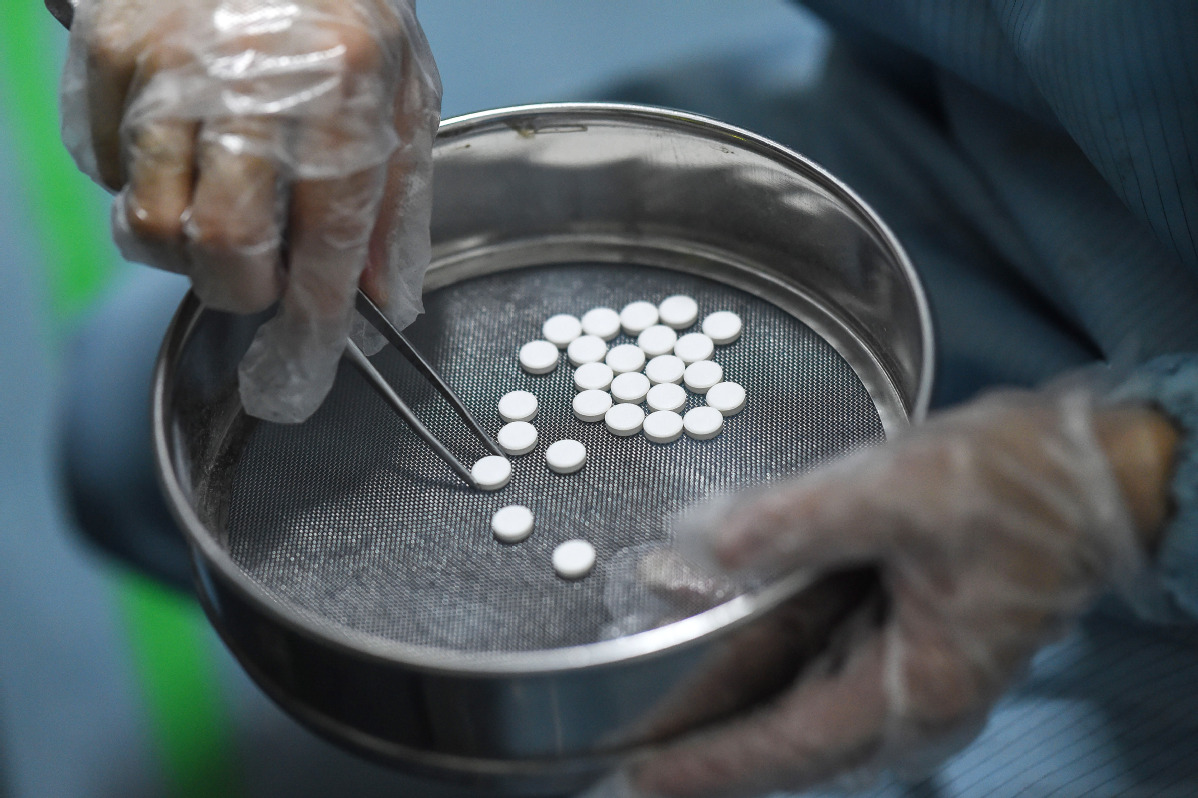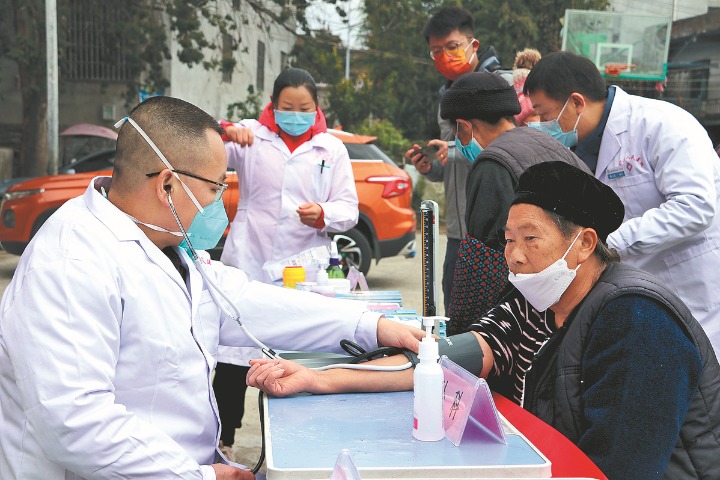Potential treatments for novel coronavirus

Chloroquine phosphate
Developed in the 1950s to treat malaria, during in vitro tests the drug has shown the potential to inhibit coronavirus growth. It is being tested on 135 patients in hospitals in Beijing and Guangdong province, and a trial in Hunan province is in the pipeline, said Xu Nanping, vice-minister of science and technology.
Of the patients tested, 130 have mild or moderate symptoms, while five were in critical condition, he said. After the drug was administered, there was no deterioration in all the tested patients' conditions. Four of the five critical cases recovered, and the status of the remaining one rose to "moderate".
Zhong Nanshan, China's leading epidemic control expert, said early clinical results show that after taking the drug for four days patients tested negative for the virus. However, the results have not been confirmed via rigorous control experiments, so it is too early to say if the drug is effective, he added.
Zhong said some experts have expressed concerns about the drug's safety, saying it could cause sudden death if the dosage exceeds the 2-gram safety limit.
"Currently, test patients receive about 1 gram of the drug per day, which is well within the safety limits," he said, adding that some adjustments to dosage will be made in light of the drug's accumulation in the body, especially for patients with heart disease.
Please feel free to contact us by sending your questions to question@chinadaily.com.cn or commenting on China Daily app. We will ask experts to answer them.














